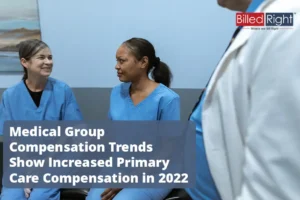OIG Finds Medicare Advantage Organizations Utilization of Prior Authorization Denials Cause For Concern

Recently the HHS Office of the Inspector General published a report calling out that Medicare Advantage organizations (MAOs) sometimes delayed or denied beneficiaries access to services even though the request met the traditional Medicare coverage rules. To compile the report, a list of prior authorization and payment denials from a one-week period in June 2019 was pulled. Next, the sample of nearly 283,000 was stratified by type of request and MAO enrollment size. In the end, a final amount of randomly selected samples – 250 denials of prior authorization requests and 250 payment denials – were chosen from 15 of the largest Medicare Advantage organizations. Analysis of those samples found that 13% of prior authorization denials met Medicare coverage rules, and 18% of payment denials were found to have been wrongly denied as they ultimately met the original Medicare coverage rules and MAO billing rules.
Medicare Advantage plans are privatized versions of Medicare and are frequently less expensive and have become increasingly more popular as they offer a wider array of benefits than the government-run program. Enrollment in these private plans has more than doubled over the last decade and now provides benefits to more than 26 million older Americans. However, a central concern about the capitated payment model used in Medicare Advantage is the potential incentive for insurers to deny access to services and payment to increase profits.
The recent report provides troubling evidence that these plans delay or even prevent Medicare Advantage beneficiaries from getting medically necessary care, accruing unwarranted revenue. Even though some of the denials ended up getting reversed on appeal, they delayed or even prevented beneficiaries from getting needed care and providers from getting paid. And the extra steps cause friction in the program creating more administrative burden for beneficiaries and providers.
It was determined that Medicare Advantage organizations denied prior authorization and payment requests for services that met Medicare rules by using MAO clinical criteria that are not contained in the Medicare coverage rules, requesting unnecessary documentation, and making manual review errors as well as system processing errors. Due to these findings, OIG is making recommendations that CMS:
- issue new guidance on the appropriate use of MAO clinical criteria in medical necessity reviews;
- update audit protocols to address the issues identified in the report;
- direct MAOs to take steps to identify and then address the vulnerabilities that can lead to manual review and system errors.
In response to the report and OIG’s recommendations, CMS stated that they are committed to oversight and enforcement of the Medicare Advantage program and has agreed to all three of OIG’s recommendations.
Increased Burden on Providers
Other research has shown that physicians consistently say that payers’ requirement for prior authorizations has increased and that excessive authorization controls required by health insurers are persistently responsible for serious harm when necessary medical care is denied or delayed. For example, in 2021, the American Medical Association’s survey showed that 34% of physicians reported that prior authorization led to a serious event for a patient. These events included hospitalization, medical intervention to prevent permanent impairment, or even disability or death. These controls have also been responsible for increasing providers’ administrative burdens as the increase in the need for prior authorizations, along with their denials, has added to the office workload. The consensus is that there needs to be more prior authorization reform across the board.
With oversight from OIG around Medicare Advantage organizations, it becomes crucial that you have a team that understands the guidelines and can keep up with the latest updates. Thus placing even more burden on an already overburdened workforce. And what about smaller teams? How are they to be an appeal expert given the ever-changing guidelines?
Where do you go for help?
With the denial rates increasing, how can in-house staff keep up with appeals and consistency in this process to ensure doctors get the payments they are owed and patients get the care they need? You need a team of revenue cycle and prior authorization professionals whose only job is to keep up with guidelines and rules. Not just around submitting prior authorizations but also appealing any denials to ensure your patients receive the care they need, and providers receive the reimbursement they deserve.
By partnering with Billed Right, you can capitalize on the expertise from over 16 years of experience. As a revenue cycle and operational management company, Billed Right offers the support your team needs to navigate this ever-changing landscape. Our goal is to take this burden off your in-house staff and give them back valuable time to provide quality patient care.
Contact Billed Right today to learn more about how becoming a strategic partner with us can streamline your workflow and save you time and money.






